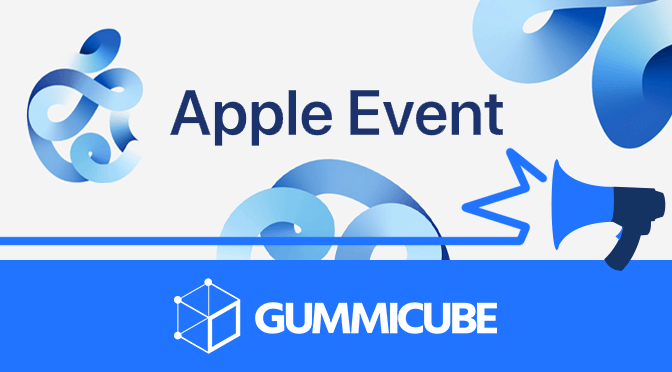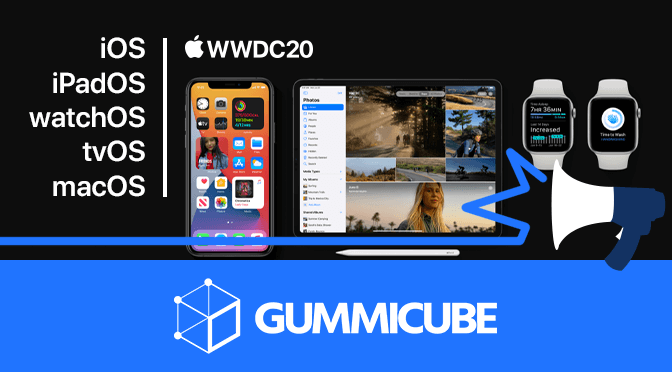Mobile Recap Of Facebook’s Developer Conference F8
April 19th, 2016


by David Quinn
VP of Strategy & Partnerships at Gummicube, Inc.
Facebook's annual F8 developer conference has grown tremendously in just a few years to become one of the most highly anticipated tech events of the year. This impressive growth is due to two main reasons:
the large number of consumers who use Facebook's products (WhatsApp, Facebook IM, Instagram, and the main Facebook site) and
the major announcements that top executives, including Facebook CEO Mark Zuckerberg, reel off
Below is an F8 recap of the announcements and events that took place during the 2016 F8 developer conference with a focus on those impacting and affecting mobile development and mobile apps.
VR/Social VR
Virtual reality was a dominant theme during the 2016 F8 conference where Facebook announced that it expects this technology to enhance social media interactions greatly in the future. In particular, Facebook envisions VR technology that would enable web users to meet their friends or visit different locations virtually. In fact, a demonstration of this technology showed two friends visiting London and taking a virtual selfie. Facebook is aware that pulling off this feat is not easy because each VR experience requires 360-degree video and at least two Oculus Rift headsets. The headsets are largely a done deal because Facebook has started shipping Oculus Rift gear to consumers. However, the 360-degree video problem is more challenging and Facebook has decided to attack it in two ways: outsourcing ideas and building solutions internally. The first approach involves the new "Surround 360" camera that enables users to capture 360-degree videos thanks to 17, 4-megapixel cameras that can shoot video content at a resolution of up to 8k. According to Facebook, this camera is based on existing hardware and the cost of building one is roughly $30,000. Luckily, Facebook said it would post the hardware design and algorithms used to stitch videos on GitHub this summer. Looking ahead, Mark Zuckerberg said he expects VR headsets to resemble a normal pair of sunglasses in about ten years. If this prediction pans out, consumers will be the main beneficiaries because current VR devices are big, clunky, and uncomfortable to wear. Some consumers have even complained of motion sickness after donning VR headgear. In addition, Zuckerberg reckons future devices in this niche will be able to handle VR and AR immersive experiences simultaneously.
App Analytics and Push
Facebook continued its push into the app analytics space with the announcement of better analytics and push notification solutions. The aim is to enable developers who have been using Analytics for Apps (debuted during the 2015 F8 developer conference) access more powerful push notifications and granular metadata on app users. One great feature is People Insights that developers can use to access user data such as job title, spoken language/s, and age. To protect the privacy of app users, Facebook only provides developers with anonymized metadata. On the notification front, Facebook now allows developers to target people who are yet to download and install their apps with push notifications. These notifications can be pushed to a specific target group such as millennials who spend a specific
amount purchasing goods/services online annually. What's more, developers can send in-app notifications that contain emojis, video and audio content, GIFs, photos, or buttons with the aim of enticing app users to take specific desirable actions. Developers can shun the "stock" actions and create customized actions that suit their needs.
Facebook SDK in React Native
Thanks to the Facebook SDK for React Native, developers can now access and incorporate features such as App Analytics, Login, Sharing, and Graph APIs into their apps. Moreover, this SDK exposes a wide range of iOS and Android app building blocks to the JavaScript programming language, thereby shortening the "build time" for apps because developers can build apps using programming languages they already know such as JavaScript. React Native will also support the development of apps for Samsung's Tizen platform. Developers need not worry about the onboarding process because the F8 app has all the information they need to get started. In fact, Facebook has open-sourced the F8 app, meaning developers can probe its internals and tweak the source code to see how it works. Developers will also be pleased to know that Facebook has hosted this SDK on GitHub in an effort to open source its solutions and attract more developers. App builders have responded positively to this approach by downloading or cloning the React Native repo on GitHub from npm about 70,000 times since March 2016. React Native's GitHub page has also garnered more than 30,000 stars since it was launched making it the 21st most starred GitHub repo.
React Native Windows Support
Facebook surprised the 2016 F8 developer conference attendees with a slew of React Native announcements. For instance, developers can now create React Native apps to run on Xbox, smart TVs, wearable devices, and Windows platforms. In fact, both Facebook and Microsoft announced the addition of Universal Windows Platform (UWP) support to React Native. Similar to other Facebook solutions, the UWP is an open source framework supported by a robust community of app developers. On its part, Microsoft has created a React Native extension for Visual Studio Code making it easier for developers to create and debug apps using a familiar programming tool. Microsoft says that the UWP's native modules and view managers are implemented in C# while Chakra is the JavaScript runtime environment.
Facebook M Open to Devs
Besides VR, Facebook has invested heavily in artificial intelligence (AI) and caught many F8 conference attendees off-guard when it announced that it is opening its "M" AI platform to developers. Facebook envisions developers using the M platform to build powerful bots that leverage the power of AI to perform tasks such as carrying out logical conversations with consumers. In this case, the aim is to enhance the business-to-consumer and consumer-to-business communication process.
Conclusion
Facebook's 2016 F8 developer conference that took place in San Francisco on April 13 was packed with announcements that will definitely excite and delight app builders. These announcements covered a wide range of topics including virtual reality, React Native Windows support, Facebook M platform, Facebook SDK in React Native, as well as App Analytics and Push.
Similar Articles

Posted on September 16th, 2020
The latest Apple event, “Time Flies,” has concluded. The live streamed event introduced us to upcoming devices and services, as well as announced the launch date for the new operating systems. True to predictions, the iPhone 12 was not announced, but there is still plenty of news app developers will want to be aware of.

Posted on September 12th, 2020
The yearly Apple Event has been announced, which means the latest in iOS devices and services will be revealed soon. The event, titled “Time Flies,” will reveal new hardware and services, although recent announcements around delayed devices raise questions about the specifics. With that in mind, here’s what we can expect at Apple’s “Time Flies” event.

Posted on June 23rd, 2020
Apple’s WWDC 2020 keynote presentation ended with several announcements, including new operating systems, app development tools and more. It’s time to look at the biggest news from the keynote and how it can impact App Store Optimization.





